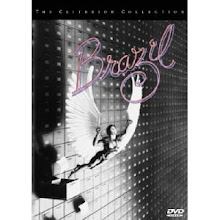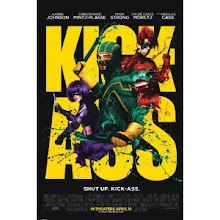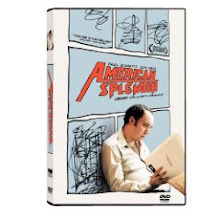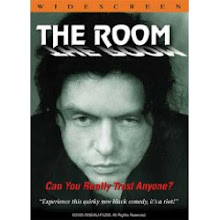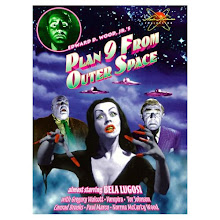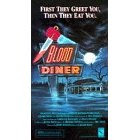Wednesday, September 15, 2010
Thoughts on Top Secret! by Andy
and
"You must go now quickly. If they find out that you've seen this your life will be worth less than a truck-load of dead rats at a tampon factory."
These, and many other great quotes are yours for small price of enduring a ridiculous spoof film. Here are a few of the notably entertaining parts for me:
East Germany.
A stamp that prints: "Find him and kill him."
Skeet-surfing.
The catholic priest listing off gibberish (including pig-latin, and other ridiculous lawyerly latin phrases) prior to his own execution.
Making out in the park to avoid suspicion by the police.
People peeing on the statue of a pigeon.
An entire scene shot in reverse.
Nigel, "the torch."
Du Quois, Chevalier, Montage, De taunt, Avant gard, Deja Vu, Croissant, Souffle, Escargot, Chocolate Mousse, Latrine - french "resistance fighters" in East Germany.
Der Pizza Haus.
An homage to The Count of Monte Cristo.
"Let me know if his condition changes. He's dead."
"How do we know that he's not Mel Tormei?"
Cow in army boots.
"I was exposed to the world's great thinkers: Karl Marx, Lennin, Elron Hubbard, Freddie Laker."
Exploding Ford Pinto.
"The Great Escape" homage.
Underwater bar-brawl scene.
"....as long as an actor can be elected president, we must continue the struggle."
So what makes a spoof movie great? It's the etherial "funny" answer. If it makes us laugh, it's a good spoof. I'm not sure why some things are funny and some are not, and I'm guessing producers of such movies struggle with that question throughout.
There's not much more to say about "Top Secret." I enjoyed it, and I wouldn't say it was the funniest film I've ever seen, but maybe one of the best spoofs ever made. Frankly, the best parts for me were some of the obscure '80s references.
By the way, here are some spoof movies that I think are funny:
"Robin Hood: Men in Tights"
"Spaceballs"
"Blazing Saddles"
"Young Frankenstein"
"This is Spinal Tap"
"Airplane"
"The Naked Gun"
and my personal favorite:
"Monty Python and the Holy Grail"
Sunday, September 5, 2010
"The Good, The Bad, The Weird"
This film is probably one that most people won't see. It's a Korean film, set in 1930 Manchuria China, and deals quite a bit with then-current Asian politics. It's not heavy-handed, and it's easy to follow, but I think most Americans are not interested in seeing films with subtitles, even if it's a great film (we've reviewed several now for this site - "The Son," "Let the Right One In," "Delicatessen," to name a few). Anyway, it's too bad, because this is a great film for those who like westerns and light-hearted gun violence.
The plot is relatively simple, and is an homage to "The Good, The Bad, The Ugly." Someone sells a treasure map and two theives vye for map, in this case, "The Bad" and "The Weird." "The Good" is a bounty hunter after both men. And hilarity and violence ensue. It's not complicated, just good fun. It's set in typical American western genre (from the plot, costumes (with cowboy hats), horses, trains, motorcycles, etc.), but is supposed to be in Manchuria China. I don't know where, exactly, the filming occurred, but it certainly resembled some of the desolate desert scenes found in our hemisphere.
One of the many cool things about the film is that, as far as I can tell, the stars do their own stunts. On the bluray extras, there is a behind the scenes featurette that shows the filming of several of the actions scenes. Woo-sung jung ("The Good") rides a horse well enough to cock the 30-30 lever action rifle like a true western cowboy. And, apparently he broke his arm during the filming. Reckless abandon...?
Anyway, it a pretty good violent fun, and even funny in the translation.
"Stephen Tobolowsky's Birthday Party," comments by Andy
Jason has a fine description of the film - watching Mr. Tobolowsky tell stories about himself. To me, the intriguing aspect to me is how the film came about. From what the director tells us, he cooked this film up after attending one of Mr. Tobolowsky's many parties. Apparently Mr. Tobolowsky is most noted among his friends for spinning yarn (story-telling, for those not in the know). We are told, and I believe it, that his parties always eventuate in everyone listening to him tell stories. The director was so intrigued and impressed that he decided to make a film of Tobolowsky telling his stories.
The film is probably a collection of his favorite stories. Interestingly enough, he's not a name dropper. He's worked with almost every A-list actor, yet his stories have nothing to do with any of them, nor does he generally even mention working with them. Classy, I think. More interestingly was who attends his parties. Sounds like some very well-known people attend his shindigs. For the film, there were at least two recognizable figures - Amy Adams (who had no speaking role whatsoever), and Mena Suvari (who only had a small comment to add).
Anyway, it's a terrific film if you are looking for interesting stories from one of the best story tellers around. I wish I could go to one of his parties.
Saturday, September 4, 2010
Considering the Cinema Welcomes a New Writer
His Gift That Keeps on Giving
by Jason Pyles
Since 1976, Actor Stephen Tobolowsky has been in about 200 films and television shows. His work is prolific and exceptional. You might not recognize his name, but you definitely know his face. Perhaps his best known role is “Ned Ryerson,” the annoying guy who afflicts Bill Murray’s character in “Groundhog Day” (1993).
My personal favorite Stephen Tobolowsky performances are those he gives during his storytelling podcast, The Tobolowsky Files, hosted by David Chen and /Film.com. If you haven’t heard any of those episodes yet, it is a must. While his acting talent is notable, Tobolowsky’s remarkable stories — real-life stories — are even better. (They are so remarkable, in fact, it’s difficult not to be suspicious of some embellishment here and there. But I am told they are completely true.)
The Tobolowsky Files are just an extension of the magic captured in “Stephen Tobolowsky’s Birthday Party” (2005), an usual documentary whose attention is fixed on a guy telling his life’s tales while preparing for his birthday party and his subsequent entertainment at said party. I realize that must sound boring, but it’s almost edge-of-your-seat engaging. And to me it is requisite viewing.
As a true, professional storyteller, Tobolowsky relays his narratives in a specific way. To describe any of the 17-odd tales he tells during the film would be to spoil them, so I won’t even attempt it.
I’ve thought about this film and the way it serves as a video diary, of sorts. Indeed, since these stories about his life are told on his birthday, it’s a fitting, autobiographical celebration of the man.
It seems odd to shoot a documentary where its subject stares at the camera and intentionally reveals his past, unfolding his life before the filmmaker and his audience. But when you consider that most people love the cinema precisely because of its narrative construction and explorations about the human experience, this documentary seems a perfectly natural addition to filmdom. It makes me thankful for May 30, 1951, when the world was given a gift. Happy belated birthday, Stephen, and thanks for inviting all of us to your party.
Note: The deleted scenes on the DVD are essentially a second film shot under the same circumstances. I guess they had three hours of storytelling footage, and they basically had to cut it in half. If you watch the deleted stories, they’re just as good as the film itself.









